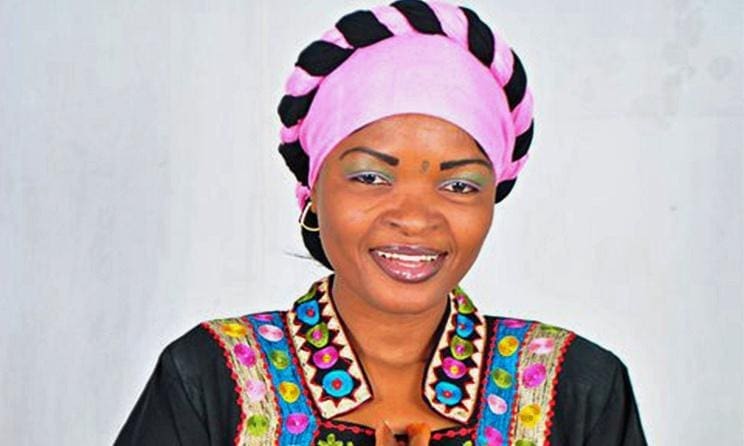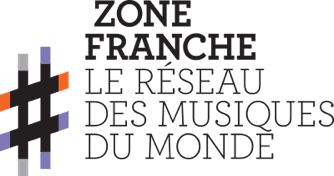This article was originally written for Music In Africa and shared with #AuxSons as part of a media partnership agreement.
This article provides an overview of the role and status of women in Northern Nigerian music, contributing both a historical perspective and a discussion of recent trends.
Historical overview
The musical traditions of Northern Nigeria predate both the age of Sharia law and British colonial conquest. Although the history of music in the region is dominated by male figures, there are instances where women played a significant role in the composition and archiving of music, especially during times of war. Prominent leaders of the Gobir Kingdom, Ibrahim Babari (1742-1770), Dan Gude (1770-1776) and Bawa Jangwarzo (1776- 1794), had songs composed for them and publicly performed by women such as Yashe Tsohuwa.
Traditionally, female musicians of the region have been involved in the composition of songs and dance forms that can loosely be categorised as ‘folk’, including lullabies and music for children (wakokin reno), songs for decorating a new house or a room for a bride (wakokin dabe), work songs (wakokin nika) and devotional songs (wakokin bege). This musical heritage has been interpreted as a means for women to gain agency, and to insist on lives that incorporate creative activities into the demands of their private, domestic roles.
Beginning in the early 1980s, when Bollywood films began to be introduced to the region, and then later translated and remade in the Hausa language, a new genre of music (wakokin fina-finai) was born. As the Northern Nigerian film industry, known locally as Kannywood, developed in the late 1990s, this style of music (also called nanaye) became widespread throughout the Northern Nigerian entertainment industry. Nanaye songs, which to a large extent carry the narrative of Kannywood films, rely on a call-and-response structure involving both male and female vocalists, thus creating opportunities for female musicians in the sphere of popular music. These musicians would largely have learnt their trade as members of religious recital groups.
The early 1980s also saw some Northern Nigerian women emerge as popular musicians. Most famous of these was Funmi Adams, who performed songs in Hausa featuring contemporary forms and modern instruments.
Prominent female musicians in Northern Nigeria
Prominent female musicians who move between the spheres of religious music and film music include Maryam A Baba, Binta Labaran (popularly known as Fati Niger), Murja Baba, Maryam Aminu Baba, Maryam Fantimoti, Zainab Baba and Zuwaira Ismail.
Maryam A Baba has composed more than 5 000 songs, including worship songs and compositions for the Kannywood film industry. Her single Sangandale is regarded as an influential release in the growing involvement of women in the Northern Nigerian film industry.
Another renowned Northern Nigerian musician, Maryam Fantimoti, began singing at the age of eight as a member of an Islamic religious choir, and later a mandiri group. Over the course of her career, she has also grown to be a prominent figure in the wider Northern Nigerian entertainment industry.
Contemporary music and women in Northern Nigeria
The region of Northern Nigeria, which was placed under Sharia law in 1999, remains conservative, with various cultural and social restrictions in place. However, despite these challenges of equality, the voices of women can be increasingly heard in almost all spheres of entertainment life in Northern Nigeria.
There are women entertainers and professional singers at weddings and naming ceremonies, political rallies, traditional sallah festivities, religious events (where incantations and music are played), government programs and other social events organised by corporate entities and institutions. In the era of globalisation, the practice of kulle (or purdah) – the seclusion of women from men and strangers – has been somewhat relaxed in some cases, giving rise to musical interaction across gender lines. Modernity has also influenced the content of women’s music in Northern Nigeria, seen in the use of topical lyrics and non-traditional instruments and dances.
At the 2016 Arewa Music and Movie Awards in Kano – an annual event organised by an umbrella body of musicians, filmmakers, dancers and other popular entertainers from Northern Nigeria – a new award was instituted and given out for best R&B female musician. Mufida Adnan, popularly known as Moofy, was the winner for her song Don’t Stop the Music, a track that is reminiscent of her idol Rihanna in its lyrics and themes. Similarly, rapper Hadiza Yau – who goes by the stage name of Haddy Rappia – is also gaining popularity in the traditionally conservative and devoutly Muslim region of Northern Nigeria.
Despite these successes, female musicians still do not regularly get the attention of event organisers and other influencers within the entertainment industry. In their quest to find spaces and platforms to develop their craft, women in Northern Nigeria are often met with discrimination.
This article is part of the Music In Africa Connects project, a multifaceted development initiative aiming to support the music sectors of African countries affected by conflict. To find out more about Music In Africa Connects, click here.
#AuxSons has translated this article into French as part of a media partnership agreement.


